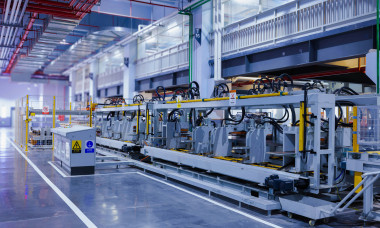Beyond the thank you note: How appreciation transforms workplaces
In the dynamic world of work, nurturing a robust workplace culture is crucial regardless of your industry. Recognising employees is more than a gesture of goodwill; it is a strategic tool to build an engaged and motivated workforce.
This blog post explores why acknowledgement matters and the benefits it brings to your organisation.
1. The foundation of productivity and motivation
Employee engagement is closely tied to how valued employees feel within a company. When employees know their efforts are appreciated, they are more likely to engage deeply with their work.
Recognition helps set performance benchmarks. When employees see rewarded behaviour, it sets a standard for others. This creates a culture of excellence, leading to increased productivity across teams.
In fact, research by Harvard Business Review highlights that creating an environment where team members feel recognised and safe to express themselves is key to unlocking their full potential and driving collective success.
2. Retaining talent to drive long-term success
Employee turnover can be costly, especially in sectors where competition for talent is fierce. Having regular and meaningful acknowledgement practices in place fosters a sense of belonging, reducing the likelihood of staff seeking opportunities elsewhere.
When employees feel valued, they develop a stronger emotional connection to the organisation. By prioritising appreciation programmes, businesses can cultivate an environment where top performers thrive and stay committed.
3. Strengthening team cohesion and collaboration
Appreciated team members often pay it forward, contributing to a culture of mutual respect and support. This environment fosters team cohesion and collaboration, encouraging employees to share ideas and support each other’s growth.
With such synergy, diverse perspectives fuel creativity and problem-solving. When individuals feel seen and acknowledged, they are more likely to contribute actively to team discussions, propelling projects forward with enthusiasm and fresh insights.
4. Creating better customer experiences
Happy team members lead to happy customers. In industries like hospitality and retail, motivated staff are more likely to deliver standout service, ensuring memorable interactions.
Employee recognition directly impacts customer satisfaction by keeping employees enthusiastic and committed to delivering high-quality service. Engaged employees are more attentive, empathetic, and responsive to customer needs, leading to memorable and enhanced customer experiences.
The result? Stronger brand reputation, improved client relationships, and long-term success.
5. Supporting mental well-being
Recognition contributes to a positive workplace culture where employees feel safe expressing their thoughts, concerns, and ideas. A sense of psychological safety Reduces stress and supports mental well-being, leading to more satisfied and engaged employees.
When recognition is part of the culture, team members are empowered to maintain a healthy work-life balance. This balance boosts creativity, focus, and productivity, benefitting both employees and the organisation.
Unlock the benefits of appreciation
Appreciation is a cornerstone of a thriving workplace.
At ReadyTech, we understand the challenges and opportunities that come with creating an engaging work culture in dynamic workplaces. That's why we've partnered with Brownie Points to provide technology solutions that improve the employee and employer experience.
We invite you to explore the implementation of a recognition programme today to experience the transformative power of employee engagement.
Reference:
Bresman, H. and Edmondson, A.C. (2022) Research: To Excel, diverse teams need psychological safety, Harvard Business Review. Available at: https://hbr.org/2022/03/research-to-excel-diverse-teams-need-psychological-safety (Accessed: 09 December 2024).






